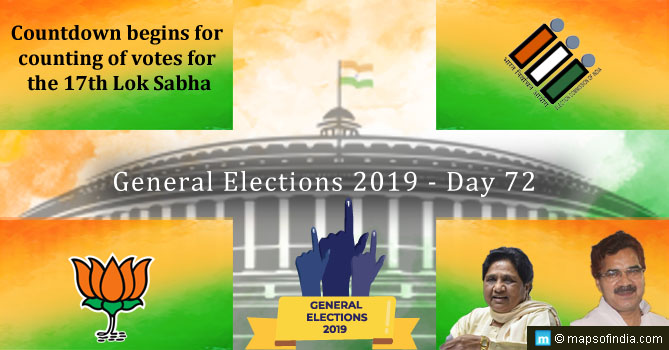The Right to Information Act (RTI) is an act of the Parliament of India “to provide for setting out the practical regime of right to information for citizens”. This act applies to all the States and Union territories except the State of Jammu and Kashmir, which has its own RTI Act implemented in 2009.
The provisions of this act allow a citizen to request information from a ‘public authority’, which may be a governmental body or ‘instrumentality of state’. The concerned authority is mandated to reply promptly or within a period of 30 days, depending on the nature of the request and the nature of the information queried for. The RTI Act also specifies that the citizen can request any information, inspect documents and records and obtain information in the form of printouts, discs and other electronic media. The citizen making the request is not obliged to make any disclosure about himself or herself except for his/her name and contact details.
So far, the political parties and the political leaders were automatically exempted from the RTI. The political parties and their leaders are instrumental in running the democratic machinery of our country, but the actual activities of policy making and fund allocation have no transparency, barring a few exceptions. The excuse that the mysterious shroud the political leaders maintain around themselves, is to ascertain a solid vote bank, is nowhere near the reality. The decision of the Central Information Commission (CIC), to mandate the political parties as public authorities and the CIC’s instruction to the political parties to appoint authorities and officials to disclose information in the face of a valid query, as mandated by the RTI, puts the political parties between a rock and a hard place. The lifting of the convenient façade of exemption from the RTI will expose the political parties, their leaders and their activities to public scrutiny which may even jeopardize the apparent credibility of the said parties. So, the blatant refusal of the political parties, to be considered as ‘public authorities,’ comes as no wonder.
CIC’s bid to declare political parties as public authorities
The verdict of a complete bench of CIC on June 3, 2013, constituted by the Chief Information Commissioner, Satyananda Mishra, and Information Commissioners Annapurna Dixit and M. L. Sharma, was one and unanimous: under the RTI Act, political parties are indeed public authorities, and are compelled to respond to the queries furnished by individuals pursuing information. The main appellants under consideration are the six major political parties of India, namely, the Congress, the BJP (Bharatiya Janata Party), the CPI (M) (Communist Party of India – Marxist), the CPI (Communist Party of India), the NCP (Nationalist Congress Party) and the BSP (Bahujan Samaj Party). As mandated by the Section 2(h)(ii) of the RTI, nongovernmental organizations enjoying the privilege of government finances come under the domain of ‘public authorities’. The CIC cited adequate examples of the above six political parties available government finances, including exemption of taxes. The CIC further bolstered its argument that political parties influence the day to day life of citizens, in every way imaginable, and are constantly commissioned in undertaking of civic responsibilities.
As the CIC concluded, “It is, therefore, important that they become accountable to the public”. Pointing out the obvious fact that the political parties, in spite of being a nongovernmental apparatus, are fully empowered to dominate governmental decisions, the CIC stated, “It would be odd to argue that transparency is good for all state organs, but not so good for political parties, which, in reality, control all the vital organs of the state”. The decision of the CIC to declare political parties as ‘public authorities’ stemmed from several pleas submitted before the CIC by the RTI activists Anil Bairwal and Subhash Chandra Agrawal, who had been refused by the said political parties any disclosure of information under the RTI, on more than one occasion.
Reaction of the political parties to the CIC’s decision
The six national political parties demurred to cooperate with the CIC’s instructions of appointing public information personnel and openly defied the six-week time frame set by the CIC for such actions. With the parties now vulnerable to the eagle eye of the RTI, they still have a period of 45 days to reconcile their decisions before further explanations are demanded of them. However, the CPI was the only national party proactive in its response to the RTI inquiry raised by activist S. C. Agrawal, and also furnished the pecuniary minutes of the party for the last five years. Rumors of the implementation of an ordinance to denounce the CIC’s orders were brushed off by the concerned officials. Minister of Information and Broadcasting, Manish Tiwari, declared in a statement given on July 16, 2013, “If you read the RTI Act, if you go back to the debate which led to its conceptualization, if the intent was to bring political parties under it, that would have been stated . . . And the law doesn’t allow you to do something indirectly which cannot be done directly and that’s why we have said very respectfully that the CIC’s order is misconceived and fails on the fundamental appreciation of the law.”
Ironically the Congress was one of the chief propagators of the RTI Act implemented in 2005. With the standing order of the CIC as of June 3, 2013, the time frame designated for the implementation of the CIC’s instruction long expired, and no court order to interfere with the rulings of the CIC, the chances of reprieve for the five national parties appear to be slim until the Parliament winter session. In a statement given on September 10, 2013, Mishra stated, “As of now, the CIC order is applicable on all six parties, and they are bound to comply”. He further added, “The commission has already received a complaint of non-compliance and can act on it by issuing a show cause notice to the parties”. It needs to be mentioned here that, as per the section 18(3) of the RTI Act, the CIC is bestowed with similar powers as that of a civil court, and the CIC is empowered to issue a summon and compel appearances of individuals, while pursuing an inquiry. The CIC is further empowered to follow court procedures like taking evidence, cross-examining witnesses, and claiming public records pertaining to a particular inquiry.
The final declaration of the CIC
On October 25, 2013, in what seems to be a groundbreaking step towards cleansing the political system of our country, the CIC upheld its final declaration, that political parties are indeed ‘public authorities’ and hence, are compelled to respond to any queries furnished under the RTI Act. The political parties declared as ‘public authorities’ are the six major national parties, namely the Congress, the BJP, the CPI-M, the CPI, the NCP, and the BSP. The instructions of the complete bench of the CIC, comprising the Chief Information Commissioner, Satyananda Mishra, and Information Commissioners Annapurna Dixit and M. L. Sharma, were specific and emphatic, “The presidents, general secretaries of these parties are hereby directed to designate CPIOs and Appellate Authorities at their headquarters in six weeks. The CPIOs so appointed will respond to the RTI applications extracted in this order in four weeks’ time”. The bench also instructed the said political parties to accede to the compulsory and voluntary admission conditions as stated under the RTI Act and update their websites with the minutes of such information.
Conclusion
The political system of our country is permeated with corruption at every possible layer. Behind every scam, every misappropriation of funds, there is a deep political nexus. But the politicians, especially those in the high places, are virtually untouchable. The political system of our country needs a thorough cleansing and under the circumstances, the decision of the CIC to bring the political parties under the mandatory umbrella of the RTI Act is a commendable step. It is unthinkable that the political parties will lay all their cards on the table. In all probability, the Congress and the other five opposition parties will conjoin and try to thwart the move of the CIC in the winter session of the Parliament. As of now, the CIC has got the political parties where it wants them to be. It is to be seen how the political parties ultimately wriggle out of this one!




